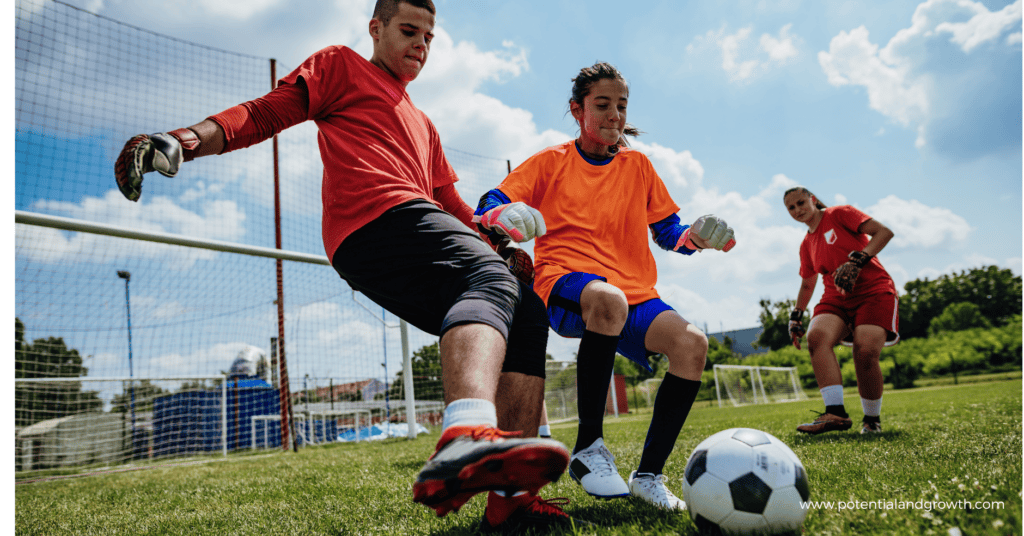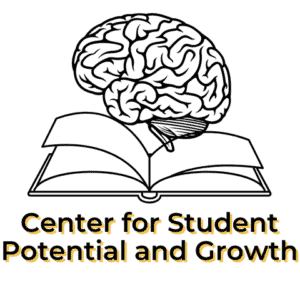
Being a teenager is tough! Teens are trying to find themselves, separate their identity from their parents, and connect with a group that feels like a good fit. So many clients I see in my practice have issues around these three core areas.
Then, you sprinkle ADHD into the mix. Helping teens with ADHD manage their emotions in these core areas can be challenging. Teens with ADHD may look just like their peers (physical development) but tend not to have the emotional development consistent with their peers. Sometimes this leads to higher rates of conflict with friends, difficulty reflecting on their behaviors or joining peer groups that may not be healthy.
At a time when their peer group takes a high priority in their lives, they may struggle to connect, leaving them feeling isolated. When teens have issues with friends, it can affect their learning and school work because, emotionally, they’re not in a good space.
In this article, we will dig into a few ways ADHD affects friendships, the impact of emotional regulation for teens, and strategies to consider if you’re parenting teens with ADHD.
Why teens with ADHD struggle to make friends
Misreading Social Cues

Social cues are the unspoken, nonverbal language nuances we pick up when interacting with others. These cues help us understand more deeply what someone is communicating to us. Things like someone with a bright eyed facial expression, showing excitement about what we are talking about to someone turning their body away from you because they’re trying to leave the interaction. Those little signs help communicate what we are saying.
Sometimes, teens with ADHD overlook these signs. Think about a time when you were talking with somebody who was clearly not interested in what you had to say, and you quickly realized you needed to wrap that conversation up! This little nudge may go completely over the head of a teen with ADHD. A teen with ADHD may keep talking, even trying to get the other person involved in the conversation when they are uninterested.
Another example of misreading cues is reading too much into an interaction. A teen with ADHD may overestimate someone’s interest, which may cause them to do things like call or text the other person too much when that person wasn’t really interested (that way). I’ve witnessed this happen with some teenagers (boys and girls) I’ve worked with. A girl (or boy) was nice to them, and they took it as something more and kept pursuing the person for a friendship or relationship, only to hurt their feelings later because the person wasn’t into them.
When situations like this happen, it can cause your teen to shut down. If they don’t do well with self-reflection, they may not see their behavior as problematic. Either of these can hurt building friendships, as retreating from socialization and not adjusting their behavior can lead to sticky interactions with peers.
Interrupting or Talking Too Much
It can be a chore sometimes getting anything out of teens! You ask them a question, and they will respond with a one-word answer. But with their peers, they are the life of the party (mom/dad, we’ve fallen from grace in our kid’s eyes). Sometimes teens with ADHD can 10 x this and talk excessively when they get around their peers, often coming off as a know-it-all or dominating the conversation. Impulsivity may be to blame here.
Excessive talking (that impairs functioning) is one of the symptoms of ADHD. Because your teen’s brain is running a mile a minute with all sorts of ideas, they may struggle to hold their ideas in mind during conversations. Then, to make sure they don’t forget, they talk over others when they’re speaking or jump into the conversation prematurely because they are so excited. Both of these can cause their friends to feel unheard and frustrated. Your teen may also get into more arguments because friends are tired of not feeling valued when they want to share information or add meaningfully to the conversation.
Emotional Outbursts or Overreactions

This is an area I am finding to be at the core of a a lot of friendship-related issues with my teens, my son included! Emotional sensitivity and emotional dysregulation can lead to a breakdown in friendships of teens with ADHD. It is estimated that approximately 75% of children with ADHD experience emotional dysregulation. 1
A key characteristic of emotional sensitivity is having strong emotions in response to seemingly small or ambiguous situations. For example, a neurotypical teen may get bumped in a crowded hallway on their way to class. They may turn and look, but they figure it was a mistake, and they move on. A teen with ADHD is bumped; they may turn around, confront the other person, maybe even assume they did it on purpose, and make a big deal of the situation. Even more, the teen with ADHD may still be thinking and talking about it hours later in the day.
In the context of a friendship, a teen with ADHD may have an argument with their friend and completely blow up, yell, make a scene, even though it was a minor disagreement. The friend feels some kind of way (understandably) and starts to distance themselves from your teen. Your teen is over it the next day and doesn’t see the big deal or has moved on when the friend hasn’t. And because your teen has moved on, they don’t want to talk about it or feel like the friend should get over it because they have.
I’ve seen both scenarios play out with teens I’ve worked with, with varying outcomes. Ultimately, strong emotions, big reactions to situations, and taking things personally or out of context has led to many teens falling out with friends and not repairing those relationships.
Forgetting Plans or Being Inconsistent
Believe it or not, well-developed executive functioning skills are a key component in maintaining relationships with others. The reciprocal nature of relationships tends to demand of us to show up for others, include them in our plans, and remember important details of their lives. This requires that our time management, organization, planning, emotional regulation, and working memory skills be on point!
I bet you can think of that one friend who always shows up late. It’s gotten so bad you started telling them to arrive one hour earlier than your other friends! If your teen struggles with managing their responsibilities and commitments, they may have a hard time remembering important events for their friends or may back out at the last minute frequently (because they didn’t plan accordingly).
If your teen has that one friend who always does something nice for their birthday or invites them everywhere and your teen hardly includes them in their plans, their friend may begin to feel the relationship isn’t that important to your teen.
Your teen’s friends may start to include them less, or they may not feel appreciated and start to distance themselves. This can be hurtful (both your teen and their friends). Your teen may not realize how their behavior (or lack thereof) impacts their relationships.
After looking at this list, it’s no wonder why teens with ADHD struggle with friendships. There are a lot of moving parts in relationships. Some things your teen will learn through experience, but sometimes we need to teach and model these skills explicitly. Stay tuned to discover some ways you can help teens with ADHD navigate their friendships better.
How parents can teach social skills to teens with ADHD
Teach Social Skills Through Practice

It may be tricky to get your teenager to practice role-playing social scenarios with you, but if you’re lucky to have a teen that plays ball, this a great way to help them improve their social skills.
This may take some leg work, but you know your teen and they probably tell you about things that come up in their friendships. I’ve found in working with teens that they tend to have recurring issues around the same core themes.
Maybe your teen is more impulsive and struggles to manage their excessive talking or you have a teen who is more inattentive, comes off as aloof and doesn’t pick up on social cues right away (or at all). If you’ve witnessed these behaviors at home, it’s likely showing up in their relationships.
A way to get them thinking about their peer interactions is to ask questions that open the floor for dialogue. It’s likely if they are telling you, it’s weighing on their mind or they are dealing with it in real time. Questions you may ask:
- Why do you think this situation was so triggering for you? (provides insight to how they see the situation)
- What do you think was triggering about this situation for your friend? (helps promote perspective taking)
- What if anything could you do differently next time? (provides insight to their level of self-awareness regarding the situation)
The goal here is to take the role of the neutral party. Then, depending on the relationship you have with your teen (this may not work for all of you, so proceed accordingly), reflect back what you heard then ask if you can share a perspective from what they have shared. When doing this, you get permission for providing input without coming off as an overbearing typical mom/dad that only wants to tell them what to do (their words, not mine!). From here, use specific examples from your personal experience with them that can shed light into their behaviors.
Here’s an example of what that may look like: It sounds like both of you walked away from that situation not being in a good space with one another. Several things came to mind when you were talking; do you mind if I share another perspective? If they say no, they don’t want to talk about it, leave it alone. If they say “sure, go ahead” proceed with the following:
“Sometimes I notice when X happens at home, your response is Y. This sometimes leads to an argument/fighting with your siblings/both of us getting mad at one another/you shutting down and not wanting to be around the family. It seems to be emotionally draining for you. Am I understanding this correctly?”
Get permission or an acknowledgement before moving on (super important). If they struggle to see the impact of a particular action within the safety of the familial relationship, going further may be a struggle to help them self-reflect.
If they agree this cycle of behavior/response is causing them distress, you can then offer a simple statement like: I wonder if you X (took a different specific action), how might that change the situation next time? By adding “I wonder” to the statement, you are not directly saying they are wrong or need to change, rather offering them an opportunity to imagine handling this situation differently. You could even practice active listening, pretending to be their friend, and take turns in conversations if they are open to it. Then ask them how they thought it went and what was challenging about waiting their turn to speak. This can be super helpful with shedding some light on the behaviors getting in the way of having positive relationships.
The key here is to help them start to self-reflect vs telling them they’re doing something wrong, which may cause them to shut down and avoid sharing things with you in the future because you’re “taking their friends’ side.”
A less invasive way of teaching social skills is by modeling ways to respond. You can also directly address their behavior in the moment. If your teen interrupts constantly when talking, the next time they do it, stop talking and let them talk. When they are done, tell them it’s frustrating and when you’re speaking and they talk over you. Express how you feel when that happens. Acknowledge the difficulty of managing ADHD and also empower change.
Because you probably have a safe and trusting relationship with your teen, they can receive the feedback without it crumbling their self-esteem.
Help Them Manage Emotions
If your teen is an externalizer (big outward emotions, think yelling, screaming, tantrums) or an internalizer (withdrawning, feeling overly anxious, overthinking, over-analyzing), helping them find ways to manage their emotions is a game-changer.
Again, modeling how to handle challenging situations is an easy to implement strategy to help them improve self-regulation. Believe it or not, our kids are always looking at us and how we navigate challenges (either directly or unconsciously). It is common in my practice that my teenage clients handle challenges like one or both of their parents. If both parents struggle with managing their emotions (both internalizers/externalizers or one of both), the teen usually will too.
Teaching techniques like saying you need a moment, removing yourself or deep breathing before responding, are helpful ways to bring the temperature down when they feel themselves getting worked up.
Create Opportunities for Friendships
Most communities have organized group activities around a specific interest that your teen may want to join. You may have to get creative with signing them up for groups (something about in-person groups and teens today being “weirded out” by being face-to-face). You might even have to try out several groups before finding a good fit.
If your teen plays an instrument or sport, or loves Dungeon and Dragons, they may naturally gravitate towards organized activities. Group activities are great ways for your teen to sharpen their social skills. If you notice your teen taking a special interest in a particular area, investing in a private coach or extra lessons to further improve their skills can work wonders for their self-esteem. It can also be a way to ignite deeper relationships when they feel good about their skills.
Support Organization Around Friendships

Showing up for friends, remembering birthdays, and making and keeping commitments help your teen maintain healthy relationships with their friends. You can help them stay on top of social commitments using their phone apps, like Google calendar, to keep track of birthdays, events, and plans.
Another way to help your teen stay organized is checking in with them to see if they have plans with friends this week. Encourage your teen to make plans with friends or reach out to check in to see how they’re doing.
If you’re the designated driver for your teen, encourage them to invite their friends along on activities that may be fun. This can increase opportunities for connection.
Celebrate Their Efforts
When you see your teen working on improving their social skills, acknowledge it! Giving them specific feedback about what you’re seeing helps positively reinforce their efforts.
Recognizing the positives they currently add to friendships is great too! Your teen adds value to their friendships and it’s important they know that. Tell them the specific ways they show up meaningfully for their friends.
Anytime you see progress or your teen self-reflecting, highlight it! Self-reflection is a precursor for changed action, so make sure you mention it when you notice it happening.
When to Seek Professional Help
You might try the strategies mentioned above and not see success, even if you’ve been working with your teen for a while. If this is the case, you may want to get additional support. Here are a few signs your teen may need additional support:
- Persistent loneliness or rejection
- Struggles with self-esteem tied to friendships
- Signs of anxiety or depression
- Difficulty with emotional dysregulation impacting relationships across settings (home, school)
If your teen is experiencing challenges with any of the above, they may benefit from getting connected to therapy or ADHD/Executive Functioning coaching to improve personal functioning and/or social skills. You can also reach out to your teens school for school-based resources like counseling or targeted social groups.
Conclusion
Friendship challenges are common for teens with ADHD and can improve with the right support. Relationships can be complicated! We have all had challenging times in relationships at one point or another. Small steps made by your teen are still something to highlight; learning how to navigate friendships is skills any teen can develop. Over time, small growth can lead to big progress over time.
If you’re looking for support that is specific to teens with ADHD, we can help. Check out our services page for therapy and coaching services designed for teens with ADHD in mind.
- https://www.apa.org/monitor/2024/04/adhd-managing-emotion-dysregulation ↩︎
